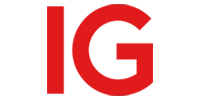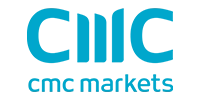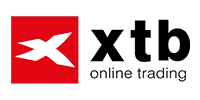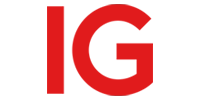Table Of Contents
- Best FOREX Brokers in Australia in 2026
- Top Tips for Selecting the Best FOREX Brokers in Australia
- The 7 Best FOREX Brokers and Trading Platforms In Australia
- What is FOREX and Why Do We Need a Broker to Trade?
- How Do I Choose the Best FOREX Broker in Australia?
- Regulation and Licensing
- Leverage
- Stop Out and Margin
- Commissions and Fees
- Tradable Assets and Instruments
- Payments, Deposits and Withdrawals in Australia
- FOREX Trading Customer Service
- Technical Aspects of the Broker’s Website
- Ask Other Traders on Our Network
- What Trading Platforms, Tools, and Features Should a Broker Offer?
- Which FOREX Broker Has the Best Platform?
- Which FOREX Broker Charges the Lowest Fees and Spreads?
- Which FOREX Broker Offers the Most CFDs?
- Which is the Best FOREX Broker for the Most Assets?
- Which is the Best FOREX Broker for Professionals?
- FOREX Trading Scams and How to Avoid Them
- Will Your Money Be Protected If Your Broker Becomes Insolvent?
- The Dos and Don’ts of FOREX Brokers
- Who is Arincen and What Do We Do?
- Conclusion
- Arincen’s Review Methodology
Best FOREX Broker in Australia for 2026
With many years of meticulous FOREX broker testing, Arincen stands out as a voice of authority. Our analyses, shaped by exhaustive data collection, are trusted by many. Each year, we gather 120 data points from more than 100 brokers. Our team of more than 20 people collaborate extensively to produce high-quality broker reviews like this one. For a detailed explanation of how we test brokers, navigate to the bottom of this article.
Note: We earn money by selling ads, placements, or through partnerships with some companies we have agreements with, learn more.
Best FOREX Brokers in Australia in 2026
| Company Name | Regulations | Minimum Deposit | Main Branch | |
|---|---|---|---|---|

ICM capital |
FCA | $200 | London | |
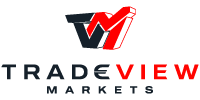
Tradeview |
SCA | $0 | New York, United States of America | |
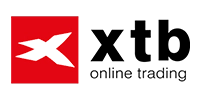
XTB |
FCA | 0$ | United Kingdom | |
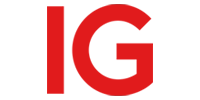
IG Group |
FCA | $250 | United Kingdom |

| Company Name | ICM capital |
| Regulations | FCA |
| Minimum Deposit | $200 |
| Main Branch | London |

| Company Name | Tradeview |
| Regulations | SCA |
| Minimum Deposit | $0 |
| Main Branch | New York, United States of America |

| Company Name | XTB |
| Regulations | FCA |
| Minimum Deposit | 0$ |
| Main Branch | United Kingdom |

| Company Name | IG Group |
| Regulations | FCA |
| Minimum Deposit | $250 |
| Main Branch | United Kingdom |
Top Tips for Selecting the Best FOREX Brokers in Australia
The 7 Best FOREX Brokers and Trading Platforms In Australia
With so many choices out there, it's tough to select the right broker. In this case, we've done the work for you. Here is a summary of each broker according to specific criteria, along with their pros and cons
ICM - Capital 91.10: Best Deposit and Withdrawal Broker
Tradeview - 90.00: Trusted broker that offers very low trading costs as well as comprehensive financial literacy materials for its clients.
XTB - 85.55: Best Customer Service Broker
IG - 85.45: Best Regulations Broker plus Convenient Platform
Saxo Bank - 80.09: Excellent Private Trading Platform
CMC Markets - 80.07: More than 9,000 Assets
ThinkMarkets - 80.05: Aimed at the Audience of Traders

ICM capital
ICM Capital is a UK-origin broker that operates worldwide. The firm provides access to diverse trading products, including FOREX, commodities, futures, and indices. ICM offers a secure and efficient trading environment by combining advanced technology with deep liquidity. The company prides itself on delivering high liquidity, tight spreads, mobile trading, and advanced technical analysis.
Why we picked ICM Capital
For its robust regulatory framework and global oversight. Its presence across multiple jurisdictions demonstrates a genuine commitment to investor protection. This foundation makes it a dependable choice for both new and seasoned traders.
| Broker Evaluation | 9.11 |
| Regulations | FCA |
| Minimum Deposit | $200 |
| Islamic Account | yes |
| Payment Methods | Bank transfer, credit card, Electronic Banks, Crypto |
| Main Branch | London |
| Customer Service | Market Opening Hours |
| Demo Account | Yes |
| Trading Platforms | MT4, MT5, C TRADER, Web Platform |
Pros
-
Segregated client funds.
-
Regulated by the UK’s FCA.
-
Long trading history from 2009.
-
More than 300,000 traders, showing trust.
-
Decent funding options.
-
No swaps.
-
MetaTrader4 (MT4) desktop and mobile download.
-
Competitive spreads
-
ECN spreads starting from zero pips.
-
Fast execution and no-requotes.
Cons
-
No proprietary platform.
-
No US services.
-
Limited cryptocurrency offerings.
-
Inactivity fees which deter casual traders.

Tradeview
Tradeview Markets, the parent company of Tradeview Forex, was established in 2004 and is headquartered in the Cayman Islands. It is committed to offering a broad and accessible trading environment through ECN trading with direct access to dozens of banks and prime liquidity providers, ensuring tight spreads. The broker offers access to a wide range of financial instruments, including FOREX, indices, stocks, cryptocurrencies, and commodities.
Why we chose Tradeview
Our choice was influenced by this broker’s transparent fee structure and competitive pricing, with low spreads and clear cost disclosures. Traders benefit from predictable pricing without hidden charges. Cost efficiency is a crucial advantage in high-frequency and active trading environments.
| Broker Evaluation | 10.00 |
| Regulations | SCA |
| Minimum Deposit | $0 |
| Islamic Account | Yes |
| Payment Methods | Bank Transfer, Credit Cards, Crypto, Electronic banks, local deposits |
| Main Branch | New York, United States of America |
| Customer Service | |
| Demo Account | Yes |
| Trading Platforms | Metatrader 4, Metatrader 5, cTrader, API/FIX |
Pros
-
Variety of trading platforms, such as MT4, MT5, cTrader, and Currenex, catering to different trading preferences and strategies.
-
Provides ECN trading through its innovative Liquidity Connector®, granting direct access to over 50 banks and liquidity providers. Offers tight spreads starting from 0 pips.
-
A low minimum deposit of only $0 is required to start trading, making it accessible to a wide range of traders.
-
Offers a broad range of financial instruments, including FOREX, indices, stocks, cryptocurrencies, and commodities, thus catering to diverse trading interests.
-
Offers educational materials and a demo account, suitable for both beginners and experienced traders looking to refine their strategies.
-
Supports automated trading through the use of Expert Advisors (EA) on MT4 and MT5 platforms.
-
Regulated by CIMA, MFSA, and will soon be regulated by the UK’s Financial Conduct Authority (FCA).
-
Offers global customer service in multiple languages, catering to international traders.
-
Offers competitive leverage up to 400:1.
-
Charges no fees for deposits, making it cost-effective for traders to fund their accounts.
Cons
-
While regulated by CIMA and the MFSA, the broker is still in the final stages of becoming regulated by the tier-one FCA.
-
This means, unfortunately, that the broker currently has no way of offering compensation to affected traders if the broker goes bust. Of course, once FCA regulation is obtained, it will be mandatory for the broker to be part of the Financial Services Compensation Scheme (FSCS) where you could be entitled to compensation of up to £85,000.
-
Trades on the Innovative Liquidity Connector® account are subject to commission charges, which may add to trading costs.
-
Lacks a dedicated mobile app, relying instead on the mobile versions of its available trading platforms.
-
While offering high leverage up to 400:1 can be an advantage, it also introduces significant risks, especially for new traders.

XTB
XTB is a well-regarded broker known for its low costs, extensive asset selection, and advanced trading tools. Founded in 2002 in Poland, it has created a proprietary xStation 5 platform that offers robust features like real-time performance stats, sentiment analysis, and heat mapping. XTB's educational resources are comprehensive, catering to all skill levels with video tutorials, guides, and an accessible Trading Academy. XTB is an excellent choice for cost-conscious traders looking for diverse investment options and high-quality support.
Why we chose XTB
We chose this broker for its responsive and multilingual customer support, available across channels when assistance is needed most. Quick, professional responses reduce friction and build trader confidence. Support quality often reflects overall service reliability.
| Broker Evaluation | 8.55 |
| Regulations | FCA |
| Minimum Deposit | 0$ |
| Islamic Account | yes |
| Payment Methods | Bank transfer, Credit Card, Electronic Banks |
| Main Branch | United Kingdom |
| Customer Service | Market Opening Hours |
| Demo Account | Yes |
| Trading Platforms | MT4, xStation |
Pros
-
20-year history of operation.
-
Regulated by the FCA (UK) and CySEC in Cyprus.
-
Globally recognized, having won multiple awards.
-
Some of the lowest FOREX spreads in the market.
-
Offers protection for client accounts.
-
Emphasis on customer service.
-
Excellent support, as well as learning and research tools.
Cons
-
Does not accept US clients.
-
Number of instruments offered is average-sized.
-
No GSLO.
-
No back-testing or automated trading capabilities.
-
No social trading.

IG Group
IG Group is a highly regarded publicly traded broker that is licensed by 10 regulatory bodies, including the FCA, in its home base of the UK. It offers more than 17,000 financial assets to trade, including currencies, commodities, regular stocks, contracts for difference stocks, ETFs, indices, and cryptocurrencies. Further, it has its own state-of-the-art trading platform and offers a relatively low spread.
Why we chose IG Group
For its clear commitment to transparency and fair dealing, with open terms and client-friendly policies. Honest reporting builds trust and fosters long-term client relationships. We value brokers who prioritise clarity over complexity.
| Broker Evaluation | 8.54 |
| Regulations | FCA |
| Minimum Deposit | $250 |
| Islamic Account | yes |
| Payment Methods | Bank transfer - credit card - Electronic Banks |
| Main Branch | United Kingdom |
| Customer Service | Market Opening Hours |
| Demo Account | Yes |
| Trading Platforms | IG Trading, MT4,ProRealTime,L2 Dealer |
Pros
-
Intuitive mobile and tablet platforms.
-
Low spread costs.
-
Client education offering extensive research materials.
-
Regulated by many reputable authorities.
-
UK and EU clients get negative balance protection.
-
Financially stable and publicly-listed.
-
Rapid response to customer service queries.
-
Extensive range of trading assets.
-
Powerful social trading community.
Cons
-
U.S. clients are limited to FOREX trading only.
-
U.S. clients do not receive negative balance protection.
-
IG CFD prices can be high by industry standards.
-
Limited product portfolio of only CFD and options in many countries.
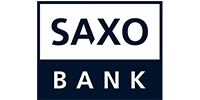
SAXO BANK
Saxo Bank is a well-established, low-risk broker based in Denmark that offers a wide range of trading services to sophisticated traders, institutions, and professional investors. It operates under strict regulatory oversight, ensuring a secure trading environment. The broker provides advanced trading platforms, including SaxoTraderPRO and SaxoTraderGO, catering to high-volume and professional traders with competitive spreads and access to over 71,000 instruments.
Why we chose Saxo Bank
For its comprehensive product range, spanning forex, commodities, indices, and popular CFDs. Such variety allows traders to build diversified portfolios within a single account. This breadth of markets supports evolving strategies and risk preferences.
| Broker Evaluation | 8.09 |
| Regulations | FCA |
| Minimum Deposit | $0 |
| Islamic Account | No |
| Payment Methods | Bank transfer, Credit Card |
| Main Branch | Copenhagen, Denmark |
| Customer Service | Market Opening Hours |
| Demo Account | Yes |
| Trading Platforms | SaxoTrader |
Pros
-
Extensive range of offerings.
-
Offers portfolio-based margin trading for pros.
-
Regulated by top regulators.
-
Excellent trading platforms.
-
Diverse account types.
-
Among the industry’s best research tools.
-
Offers protection for client accounts.
-
No inactivity fee.
-
No platform fees.
-
No minimum funding for entry-level accounts.
Cons
-
Some bonds, options, and futures fees are high.
-
With so many assets, fees can be confusing.
-
High minimum deposit for Platinum and VIP accounts.
-
Does not accept US clients.
-
No MT4 for traders who are used to the platform.
-
No GSLO.
-
No Islamic accounts.
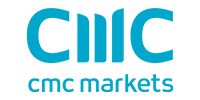
CMC MARKETS
CMC Markets is a global CFD and FOREX broker established in 1989. It is regulated by several authorities globally. The company delivers a formidable offering for traders thanks to excellent pricing, nearly 12,000 tradable instruments, and its proprietary Next Generation trading platform. The platform comes packed with quality research, innovative trading tools, and powerful charting. CMC provides traders with access to an extensive range of CFDs and spread betting across several asset classes.
Why we chose CMC Markets
This broker’s risk management tools and flexible order types stood out to us, enabling traders to tailor positions according to market conditions. Features like stop losses, take profits, and conditional orders provide strategic control. These tools are essential for disciplined trading.
| Broker Evaluation | 8.07 |
| Regulations | FCA |
| Minimum Deposit | 0$ |
| Islamic Account | No |
| Payment Methods | Bank transfer, Credit Card, Electronic Banks |
| Main Branch | United Kingdom |
| Customer Service | Market Opening Hours |
| Demo Account | Yes |
| Trading Platforms | Proprietary Platform, MT4, Web Platform |
Pros
-
Extensive range of offerings.
-
Regulated by the FCA (UK) and other top regulators.
-
Low FOREX fees.
-
Emphasis on education and customer service.
-
Great Web and mobile platforms.
-
Offers protection for client accounts.
-
Research amenities are industry leading.
Cons
-
Does not accept US clients.
-
High CFD spreads for certain indices.
-
It only offers CFD trading, so traders cannot own the underlying asset.
-
Does not support deposits and withdrawals through electronic payments.

think markets
ThinkMarkets is a multi-regulated broker with offices around the globe. The firm is primarily a CFD broker, allowing you to trade across 4,000 instruments in FOREX, futures, commodities, indices, ETFs, crypto, and stocks. With an emphasis on superior customer service, ThinkMarkets maintains round-the-clock support in several languages. It provides different trading accounts suited to individual traders' needs. This includes zero-commission accounts and access to trading guides, analysis tools, and industry news feeds.
Why we chose ThinkMarkets
We selected this broker for its fast and flexible funding options, including bank transfers and card payments. Smooth deposits and withdrawals reduce administrative delays and support efficient capital management. Accessibility of funds is an often-overlooked but essential feature.
| Broker Evaluation | 8.05 |
| Regulations | FCA |
| Minimum Deposit | $0 |
| Islamic Account | Yes |
| Payment Methods | Bank transfer - credit card - Electronic Banks - Crypto |
| Main Branch | Australia |
| Customer Service | Market Opening Hours |
| Demo Account | Yes |
| Trading Platforms | Proprietary Platform, Web Platform, MT4, MT5 |
Pros
-
Beginner assistance is offered through round-the-clock channels.
-
Spreads are as low as 0.0 pips.
-
Round-the-clock expert customer service.
-
CFD shares and indices come at no extra fee.
-
Zero broker fees for FOREX trading.
-
Technical analysis and quality market information.
Cons
-
No binary options are offered.
-
Commissions are charged for two account types.
-
Range of tradeable assets is not as wide as some competitors.
-
No US clients allowed.
There is a high degree of risk involved in trading securities like FOREX, or CFDs, which are highly complex instruments. As a trader, you could be exposed to excessive leverage, questionable broker tactics, market volatility, and limited regulatory protection. Despite your best trading techniques and risk management strategies, your efforts may not be profitable, and you could suffer losses.
What is FOREX and Why Do We Need a Broker to Trade?
The global FOREX market is a decentralized marketplace where worldwide currencies are traded. This trade does not take place in a physical place but is conducted electronically over the counter (OTC). This means that all transactions occur via computer networks between traders all over the world rather than on one centralized exchange. The FOREX market operates 24 hours a day and five days a week (Monday to Friday), except for international holidays. The FOREX market is the largest financial market in the world with some six trillion dollars changing hands daily. FOREX brokers in Australia play a key role in this area by enabling clients to buy and sell through a trading platform. Most trading platforms are accessible in web and mobile format.
How Do I Choose the Best FOREX Broker in Australia?
Don’t rush to open an account just because a broker advertises tight spreads or bonuses. Dig into where they’re regulated, how they safeguard client funds, and whether they offer negative balance protection. See if their trading app feels intuitive and stable. The “best” broker is the one that helps you trade confidently and sleep well at night.
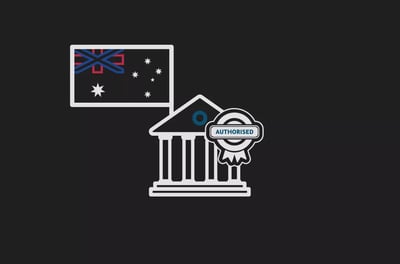
Regulation and Licensing
The ASIC has a reputation for being one of the safest regulators in the world. It rightly has a tier-1 rating, which means that across a range of important measures, like reporting and operating models, it stacks up well against counterparts in other parts of the world.
The ASIC has been an important part of the Australian financial system since the early 1990s. It is the key FOREX regulator. With the rise of retail trading in the 1990s, the ASIC was the driver behind a shake-up of the regulatory framework in the country, changing the way it requested information from, and gave operating guidance to, businesses in the sector.
Now one of the most active regulators in terms of safeguarding the interests of investors, the ASIC demands that every FOREX broker in the country obtain a valid Australian Financial Services License (AFSL). With this license, brokers can start to trade, but they must abide by strict regulations, such as capital adequacy and reporting standards.
Although ASIC has pre-eminence in Australia, there are other major regulators around the world. If you want to learn more about some of the best-regarded regulators, read our article on regulation here.
To ensure that your broker is legit, you can follow these steps:
Ask if the broker is licensed to sell you FOREX
Check if the broker is registered with the ASIC
Ask your broker to explain how they will compensate you in the event of its insolvency
Check your statements regularly to ensure that everything is above board.
Remember that it's important to comply with all applicable requirements, including any self-regulatory organizations to which brokers belong, and not just those mentioned here.
Make sure your broker is regulated by a reputable authority. Not all brokers are regulated by tier-one regulators, but you can still rest easy if your broker works with the regulator in your area. To verify if your broker is registered with a regulator, navigate to the regulator’s official website.
Leverage
Leverage refers to the use of borrowed funds to increase your trading position beyond what would be available from your cash balance alone. It allows traders to amplify potential profits from a trade but also increases the potential for significant losses. Essentially, leverage magnifies both gains and losses relative to the amount of capital invested. Depending on the regulator under which your broker works, you will encounter different policies relative to leverage. Key regulators have implemented specific rules to limit the leverage offered to retail traders as a means of consumer protection.
Here is a list of major reasons your broker must be regulated:
Safety of funds:
A regulated broker must comply with strict regulations to protect client funds, including segregating client funds from the company's own funds.
Fair trading practices:
A regulated company must adhere to strict guidelines ensuring products and services are offered fairly and without manipulation, helping create a level playing field for all clients.
Transparency:
The law compels regulated brokers to be transparent with clients, which assures you of safe, fair trading. In practice, this looks like brokers admitting openly that FOREX trading is highly risky and you could lose your money.
Protection from fraud:
Regulatory authorities protect clients from fraudulent activities and scams and ensure that FOREX brokers operate within set guidelines that safeguard their clients' interests.
Here are selected leverage rules according to some key regulators:
ASIC, Australia:
30:1 for major currency pairs
20:1 for non-major currency pairs, gold and major stock market indices
10:1 for commodities other than gold and minor stock market indices
5:1 for equities (stocks) and other underlying assets
2:1 for cryptocurrencies
Financial Conduct Authority (FCA), UK:
30:1 for major currency pairs
20:1 for non-major currency pairs, gold and major indices
10:1 for commodities (excluding gold) and non-major equity indices
5:1 for individual equities and other reference values
2:1 for cryptocurrencies
These limits are in place to reduce the risk of significant losses for retail traders.
Swiss Financial Market Supervisory Authority (FINMA), Switzerland:
FINMA has not set specific leverage limits. However, Swiss brokers must adhere to rigorous capital and risk management requirements, ensuring they don't offer excessively high leverage that could endanger their solvency or their clients' funds.
Commodity Futures Trading Commission (CFTC), USA:
The CFTC enforces a 50:1 leverage limit on major currency pairs and a 20:1 limit on non-major currency pairs for retail FOREX traders.
The U.S. has a distinct regulatory environment, with retail FOREX trading regulated separately from other forms of derivatives trading.
It's worth noting that these rules generally apply to retail clients. Professional or institutional clients might have access to different levels of leverage, depending on the regulatory environment and the broker's policies. As we can see, responsible regulators closely monitor leverage levels. Leverage is a double-edged sword because you can make a lot of money, but you can just as easily suffer heavy losses.
High leverage can amplify potential profits, but it equally magnifies potential losses. It can put a stop to your trading career if not used carefully. The allure of high returns is tempting, but the risk associated with such strategies is highly dangerous. We strongly urge traders to approach leverage with caution, fully grasping its mechanics and implications.
Stop Out and Margin
Stop outs are bad news. It is one of the worst things that can happen to a retail FOREX trader. If this happens to you, rest assured that you have not planned your trading activities well. Here are selected leverage rules for stop outs according to some brokers:
Stop out of 0%:
Your broker won't close any of your positions, even if your margin level reaches rock bottom. This is because some brokers allow you to end up in the red, which means you might owe them money if your trades keep losing.
Stop out of 50%:
Once your equity dwindles to half of your used margin, the stop-out alarm goes off. Your broker steps in and starts closing your trades, beginning with those least profitable. This continues until your margin level bounces back above the stop-out level.
Stop out of 100%:
When your margin level hits 100%, your broker takes the drastic step of automatically closing all your open positions. In some setups where the broker separates margin-call and stop-out levels, the margin call happens at 100% and the stop out at 50%. If your margin level plunges to 50%, your trading platform springs into action with a stop out, closing your trade at the market price.
It's worth noting that while stop-out procedures are meant to protect traders from negative balances, they can lead to significant losses in volatile markets if positions are closed automatically, especially if the market quickly reverses after the stop out. As such, using protective measures, like stop-loss orders and not over-leveraging, is always a good idea. Additionally, the specific percentage and the order in which positions are closed can vary among brokers, so traders need to be aware of their broker's policy on stop-out levels.
Commissions and Fees
Trading fees can sometimes be hard to understand. Be sure to check how these fees compare with industry standards:
Spreads: There are two main kinds of spread, one is fixed and the other is variable. Generally, the spread refers to the gap between two prices, such as the bid/ask rate in a currency exchange rate. If you are getting a spread of 1.4 pips for the EUR/USD, you can rest easy that you are getting a good deal at present market rates. The narrower the better; this means that a spread of 1.4 pips is better than a spread of 2 pips. This article explains more about this important concept.
Commission: This is nothing more than the service charge that brokers require for carrying out transactions on behalf of their clients.
Rollover fees: When you leave a trade open overnight, the broker normally charges a rollover fee for the facility of holding your trade open for that period. This is because they assume the risk of the market changing adversely.
Withdrawal and Deposit Fees: Some platforms might charge fees for depositing or withdrawing funds. Pay attention to this. It's important to be aware of these and any associated limits or conditions.
Subscription or Inactivity Fees: Certain platforms have monthly charges or fees for inactive accounts. Ensure you're aware of these potential costs.
To keep track of trading fees, you can follow these steps:
Research different brokers and trading platforms.
Compare the fees of each platform.
Choose a platform that offers competitive fees and suits your trading needs.
Remember that trading fees can have a significant impact on your trading profits, so it's important to choose a platform that offers competitive fees and suits your trading needs.
To assess trading costs accurately, the Arincen research team examined broker pricing across multiple sources, combining published fee schedules with observed trading conditions. Our analysis focuses on spreads, commissions, and additional charges that impact traders in practice. You can see the consolidated findings in the table that follows.







| Spread | Commission | Swap | Islamic Account | |
| Currencies | Starting from 1.3 Pips | 0$ | No | Available |
| Stocks | Starting from 18 Pips | 0$ | Yes | Unavailable |
| Commodities | Starting from 2.3 Pips | 0$ | No | Available |
| Indices | Starting from 4 Pips | 0$ | Yes | Unavailable |
Tradable Assets and Instruments
As part of our evaluation process, the Arincen team gathered and cross-checked broker pricing from official documentation and live trading environments. This approach allowed us to compare spreads, commissions, and fees under actual market conditions. The breakdown of our findings is presented in the table that follows.
| Brokers | Currency pairs | Stocks | Indices | Commodities | Crypto | ETFs |
| Tradview | 80 Pairs | 5000 Shares | 10 Indices | 10 Commodity | 30 Coins | Unavailable |
| ICM Capital | 67 Pairs | 89 Shares | 17 Indices | 12 Commodity | 6 Coins | Unavailable |
| XTB | 57 Pairs | 1848 Shares | 36 Indices | 22 Commodity | 22 Coins | 135 ETFs |
| IG | 81 Pairs | 21714 Shares | 49 Indices | 39 Commodity | 11 Coins | 12858 ETFs |
| Saxo Bank | 320 Pairs | 22000 Shares | 49 Indices | 39 Commodity | 9 Coins | 6700 ETFs |
| CMC Markets | 330 Pairs | 8000 Shares | 80 Indices | 100 Commodity | 18 Coins | 200 ETFs |
| Think Markets | 46 Pairs | 3750 Shares | 15 Indices | 11 Commodity | 21 Coins | 350 ETFs |
Payments, Deposits and Withdrawals in Australia
Recommended Brokers
Our pricing review draws on Arincen’s independent research, where we analysed broker cost structures using both advertized rates and real-world trading data. By comparing spreads, commissions, and related fees, we aimed to reflect what traders are likely to experience. The outcome of this assessment is displayed in the table below.







| Method | Credit Card | Wire Transfer | Skrill | Neteller | Cryptocurrency | PayPal |
| Deposit fee | 0$ | $0 + Bank commission | 1.9% | 2.5% | Unavailable | 3.75% |
| Withdrawal fee | 0$ | $15 | 1% | $0 | Unavailable | 2% |
FOREX Trading Customer Service
- Quick resolution of issues
- Educational support
- Assistance with queries during volatile markets
- Account security
- Customized advice (although not all customer service desks offer this)
- Technical assistance
- Regulatory compliance queries
Based on in-house analysis by the Arincen team, we reviewed pricing data from both official broker websites and live market conditions. This included spreads, commissions, and trading fees observed in real use. The results of that comparison are summarized in the table below.







| Live Chat | Phone | |||
| Available | Available | Available | Available | Available |
| Quick response | Quick response | Fast | Fast | Fast |
Technical Aspects of the Broker’s Website
Ask Other Traders on Our Network
What Trading Platforms, Tools, and Features Should a Broker Offer?
When picking a trading platform, it's crucial to consider what works for both beginners and experienced traders. Here are some things to think about:
Technical Analysis Tools: Look for a platform that has solid technical indicators. They are useful for making smart trading decisions.
Customization and User-Friendliness: You should be able to tweak the platform to match your style. Within the MetaTrader product family, both MT4 and MT5 are known for their excellent customization features. Here’s a comparison between the two.
Platform Accessibility: Whether it's web-based or downloadable, a good platform should give you options.
Risk-Management Tools: Trading is risky. A top-notch platform should allow you to set stop losses and take-profits to manage those risks.
Performance and Reliability: As a newcomer, you should be looking for a platform that runs smoothly when called upon.
Learning and Help Resources: It's a boost if the platform is not only visually pleasing and customizable, but also comes with guides and support to help you when you're stuck.
To find the perfect platform, here's what you can do:
Figure Out Your Style and Needs: First, decide how you want to trade and what you need from a platform.
Research Different Platforms: Look at what's out there and compare what they offer.
Test with a Demo Account: Try the platforms by using a demo account. This gives you the chance to trade in a risk-free environment with virtual money.
Check Reliability and Reputation: Make sure the platform is known for being dependable and trusted in the trading world.
Remember, the platform you choose can make a big difference in how successful your trading is, so take your time picking the right one.
Tip for those who have no experience
Every successful trader begins with a solid foundation in education and research. We've meticulously curated a suite of resources for you. Dive into our comprehensive articles to grasp the basics, watch our videos to learn from industry experts, and stay updated with our newsfeed. Moreover, our expert signals and sophisticated analytics are at your fingertips to guide your every decision.
Which FOREX Broker Has the Best Platform?
Which FOREX Broker Charges the Lowest Fees and Spreads?
Our research shows that ICM’s ECN account is unmatched for low fees and spreads for entry-level and experienced traders alike.
Which FOREX Broker Offers the Most CFDs?
Which is the Best FOREX Broker for the Most Assets?
Which is the Best FOREX Broker for Professionals?
FOREX Trading Scams and How to Avoid Them
The ASIC’s role is to maintain, facilitate and improve the performance of the financial system and entities in it. It also promotes confident and informed participation by investors and consumers in the financial system. Finally, it seeks to administer the law effectively and with minimal procedural requirements. All this being said, FOREX scams are difficult to launch in a country with so many safeguards.
The ASIC will have no hesitation in suspending the license of any broker that has been found guilty of wrongdoing in terms of partaking in a scam to defraud customers. In terms of external threats, the ASIC has a robust ongoing public awareness campaign where it broadcasts important information on its website on all identified scams, along with helpful fixes and contact numbers for traders to reach if they need to make a report or lodge a dispute.
Will Your Money Be Protected If Your Broker Becomes Insolvent?
The ASIC is an agency that has a comprehensive and exacting set of regulatory guidelines intended to dissuade firms from propagating financial scams. The watchdog continually monitors regulated members using detailed scheduled reporting or even unscheduled requests for information.
The ASIC has rolled out a centralized regulatory structure that gives guidance and recommendations on how brokers should conduct their business. Some of the important guidelines include ensuring that brokers keep at least $1 million in operating capital. Brokers should also maintain client funds that are segregated in tier-1 banks. The ASIC also has an investor compensation scheme in place to ensure that client funds are protected in the event of broker insolvency.
Regarding investor compensation, there is a rather complicated compensation mechanism that means discretionary payments can be made by the Finance Minister to affected claimants. This process is run through the Scheme for Compensation for Detriment caused by Defective Administration (CDDA), which allows individuals to apply for compensation in qualifying cases. The ASIC does not get to make decisions on the outcomes of cases.
The ASIC entertains consumer complaints but encourages claimants to resolve issues at the broker level. If there is no resolution, claimants can contact the Financial Ombudsman service instead.
The choice of a regulated broker isn't merely a matter of preference—it's a protective measure. When a broker is regulated, it undergoes stringent assessments to ensure transparency, fair trading practices, and your financial security. Opting for an unregulated broker brings with it significant risks. For a list of the best regulators, read our article here.
The Dos and Don’ts of FOREX Brokers
- The FOREX brokerage firm cannot recommend a buy or sell;
- The FOREX brokerage firm must not provide price or market expectations (rise/fall);
- The FOREX firm cannot control your financial dealings (deposit/withdrawal);
- The FOREX brokerage firm should not “manage” your portfolio under any circumstance;
- The FOREX brokerage firm cannot grant a client a bonus unless clear terms are guiding it beforehand.
- The brokerage firm must not use bank accounts not under its name; and
- FOREX brokerage firms cannot have or offer the service of account managers.
Recommended Brokers
Who is Arincen and What Do We Do?
Conclusion
Arincen’s Review Methodology
The team at Arincen collected more than 120 pieces of data covering more than 100 licensed FOREX companies. Data collection was done in three ways:
Companies’ websites.
Other websites that have ranked FOREX companies.
A survey questionnaire (referred to here as Survey “1”) was sent to the companies invited to participate in the exercise. We have identified 13 criteria for our assessment, each containing several aspects and carrying its own relative weight. These include licensing, deposits and withdrawals, number of assets, etc.
Afterwards, we validated the data by:
Registering with FOREX companies as a secret shopper and/or as Arincen.
Survey number “2,” in which we asked these companies’ customers for important feedback and experience.
The next step saw us evaluate and rank each company, relying on the hard work of 15 Arincen employees. We were very careful in ensuring the most accurate assessment possible, including considering different languages, as well as the various mobile-app operating systems, e.g., Apple, Samsung etc.
To add credibility to our research project, we sent a final and third survey (referred to here as Survey “3”) to enable participating FOREX companies to evaluate our research and whether it accurately reflects the realities on the ground. We were fortunate enough to receive a mark of 9.9 out of 10! We have kept to a minimum the margin of error, which stood at a measly 1%. To learn more about how we came up with the evaluation, please click here.
Forex Risk Disclaimer
Trading foreign exchange on margin carries a high level of risk, and may not be suitable for all investors. The high degree of leverage can work against you as well as for you. Before deciding to trade foreign exchange you should carefully consider your investment objectives, level of experience, and risk appetite. The possibility exists that you could sustain a loss of some or all of your initial investment and therefore you should not invest money that you cannot afford to lose. You should be aware of all the risks associated with foreign exchange trading, and seek advice from an independent financial advisor if you have any doubts.
FAQ
Yes, trading FOREX trading is legal in Australia. FOREX trading is considered to be an activity that can lead to gainful profits, as such it is highly regulated, making it easy to keep it legal.
The FOREX market is a place where global currencies are bought and sold. It is a large and active marketplace that requires technologically superior tools if you are to participate as a retail trader. The market operates 24 hours a day and five days a week (Monday through Friday), except international holidays.
FOREX trading involves buying and selling different worldwide currencies for a profit. Retail traders select a currency pair and, in anticipation of market-driven changes in value, wait for the right moment to make a sale for a profit.
FOREX brokers in Australia charge any combination of commissions, spreads, and financing fees. Brokers can either charge a spread (the difference between the buy and sell price of a currency pair) and include their facility fee in the spread, or they can charge only a market rate spread and levy a commission per trade outside the spread. Financing fees come into play if you hold your position overnight. You must pay a financing cost for the benefit of keeping your positions open for an extended time.
Good customer service is vital to FOREX trading as it is a fast-moving marketplace where traders can lose money if their account is non-functional or deactivated for any length of time. As such, you must select a broker that can offer excellent customer support whenever you need it. Company staff must be accessible and knowledgeable enough to be useful in times of difficulty.
Yes, FOREX trading is taxable in Australia. FOREX trading is recognized as a genuine activity that can generate personal income, meaning that the profits you make from these trades are subject to tax. You will only be expected to pay taxes if you have made profits within the tax assessment year. Consult a tax expert to find out how you can comply with tax regulations in Australia.

